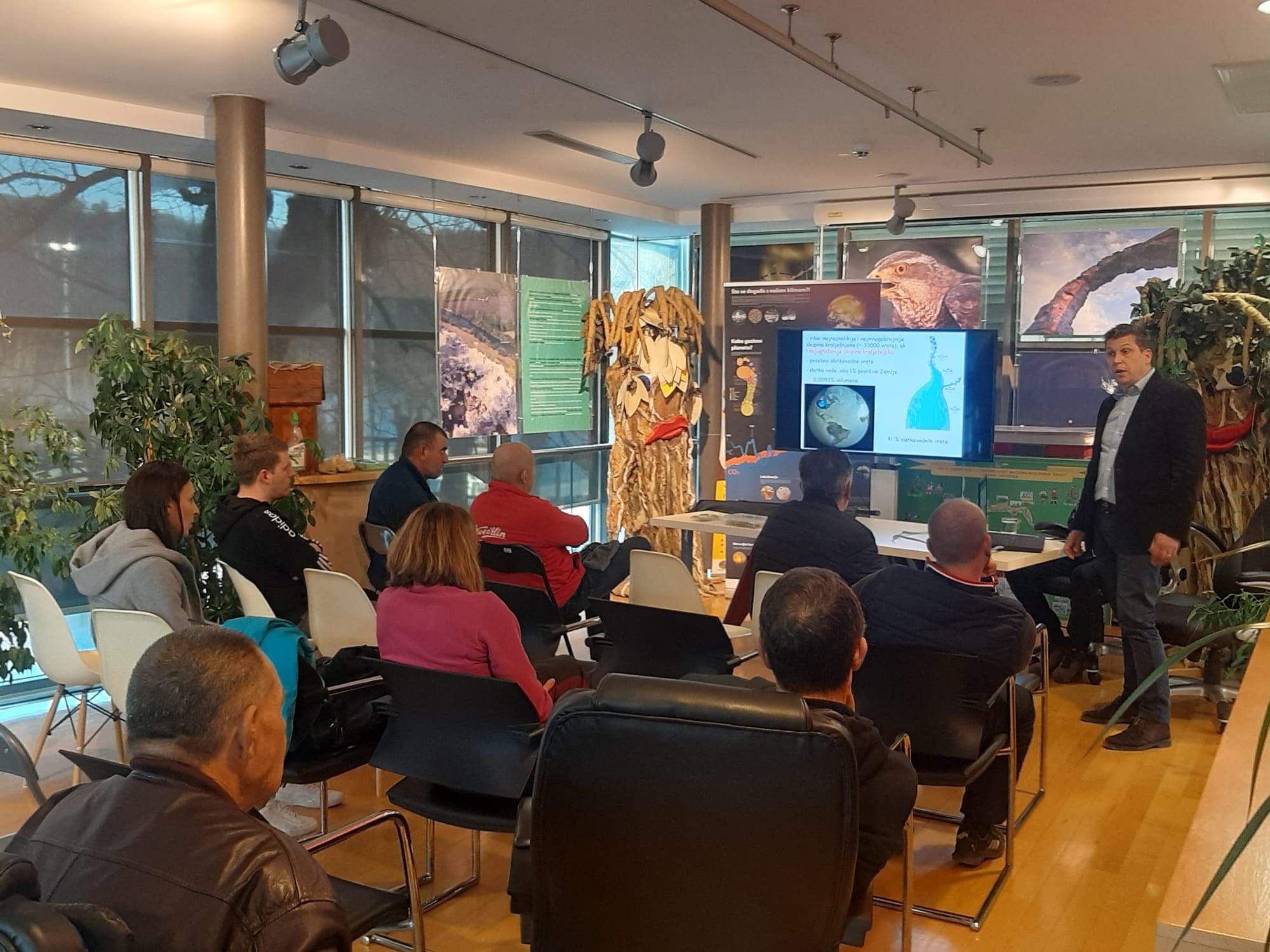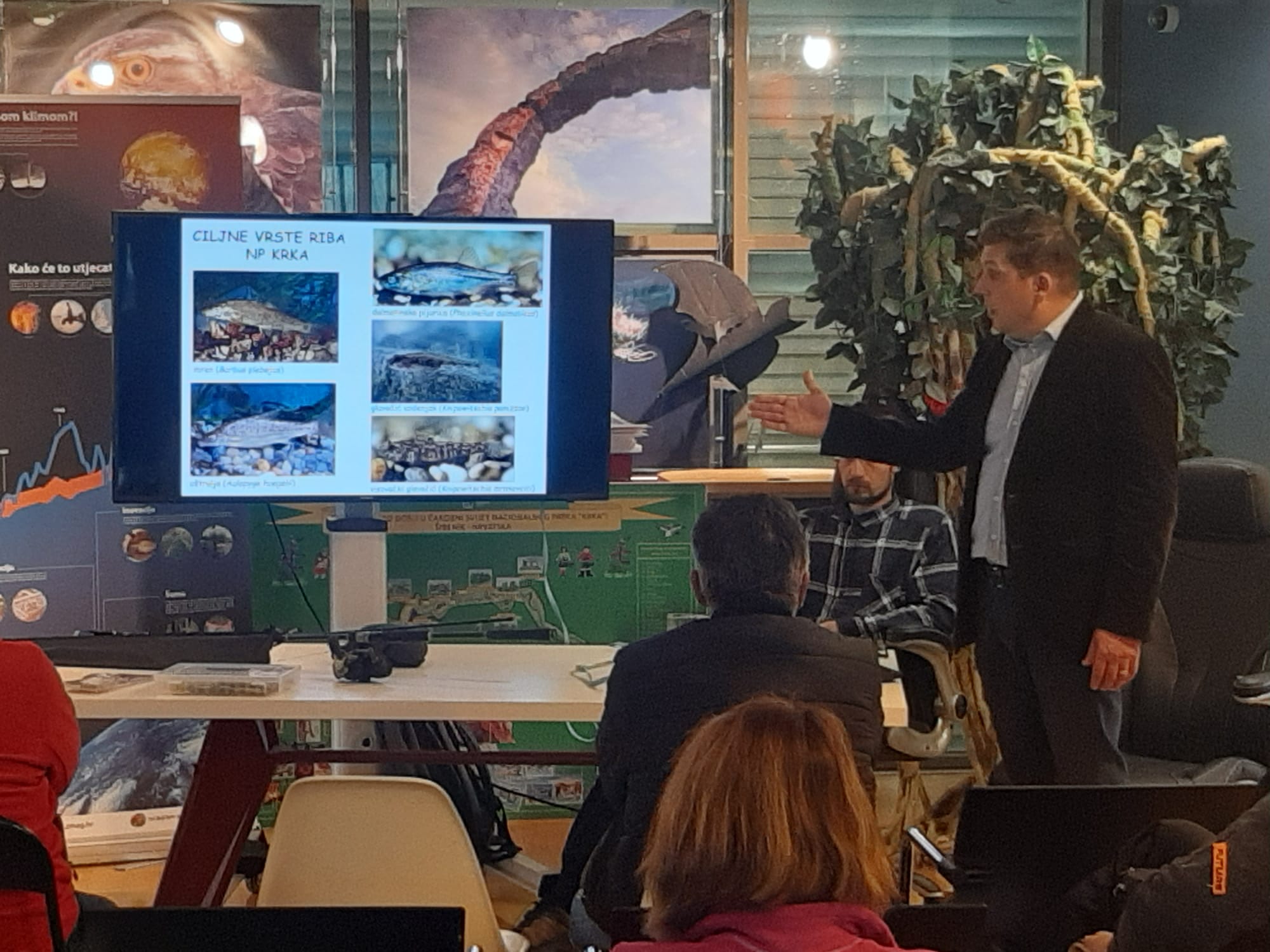Diversity, status and protection of the freshwater fishes of the Krka River
21/02/2023
Yesterday at the branch office in Skradin, the Public Institute of Krka National Park organised a lecture for the local population on the state of the fish fauna in Krka National Park, and projects to protect it
The lecture was held by Dr. Davor Zanella, professor at the Faculty of Science, University of Zagreb, head of the project to research the distribution and state of the population of target species of freshwater fishes in Krka National Park conducted during 2021-2022. A second project is currently underway to determine the state of invasive species of fish throughout Krka National Park.
The course of the project and its results were presented to the local population, as an important partner in protecting the indigenous fish fauna, and eradicating the invasive species that threaten them. The Krka River is a watercourse in the Adriatic Basin and contains the highest number of freshwater fish species, making it an interesting ichthyological area in both Croatia and Europe. The research was conducted with the aim of collecting new data on the community of freshwater fish, particularly the habitats and distribution of target species, and these data will be used to develop the basis for zoning areas of Natura 2000 Ecological network, and the results will also serve in adopting specific measures to protect these target species. During the research, a total of 24 fish species with 12,279 individuals belonging to 16 families were recorded. Six alien species were recorded, and eight species are indigenous and endemic: Dalmatian barbel-gudgeon, barbel, Visovac goby, Dalmatian minnow, rudd, Illyrian chub, and Turskyi dace. The endemic and rare freshwater fish species are the result of the river’s geological past, making the Krka a true monument of ichthyology of the highest national and international importance. Monitoring the state of fish communities, indigenous and introduced species, will continue so as to promptly react to changes in the communities and to restore suitable habitats.
Some of the causes of threat to freshwater fish are watercourse regulation and barriers, habitat degradation, water pollution, climate change and alien and translocated species. In recent years, there have been changes to the fish community and the appearance of invasive species introduced from the Danube Basin. Krka National Park is working intensively with the local population to remove these alien species.




News
JOŠ NOVOSTI IZ KATEGORIJE
Nacionalni park „Krka“ ugostio partnere iz Latvije i Finske
Cilj Erasmus+ projekta „Podizanje ekološke osviještenosti kod mladih iz zaštićenih područja“ je uključivanje mladih u dobi od trinaest do trideset godina u aktivnosti zaštite prirode i okoliša
A thousand seedlings were distributed: Krka NP participated in the campaign "Let's grow together" for a greener future
The Krka National Park again joined the European campaign “Let’s grow together” this year, within which a thousand lavender and laurel seedlings were distributed on the occasion of International Labor Day at the Skradinski buk waterfall
International Labor Day in the Krka National Park: the gifting of seedlings and free entrance to the Park
This year, the Krka National Park will join the European campaign “Let’s grow together” and on Labor Day at Skradinski Buk at noon, they will distribute a thousand laurel and lavender seedlings, which visitors to the Park can plant in their gardens and yards
The second edition of the Regenerate Europe conference offers "glocal (global/local)" perspectives for the revival of Croatian tourism on the wings of a renewal of local food production and agriculture.
At the Krka Eco Campus in Puljane in the Krka National Park, a two-day international conference “Regenerate Europe” (in English) is being held on May 2 and 3 (and online) on the topic of encouraging local food production and strengthening the connection between local enogastronomy and tourism
